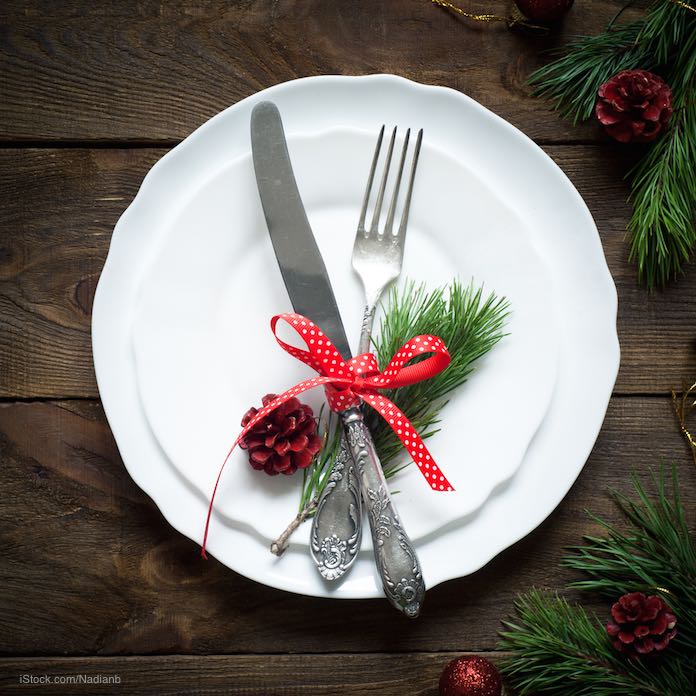The FDA is offering food safety tips for healthy holidays so you can keep your family safe this season. It’s important to follow these tips and to know the signs of food poisoning just in case.

Most people sickened with food poisoning suffer with vomiting, diarrhea, abdominal cramps, and symptoms similar to the flu. The illness usually starts hours to days after eating contaminated food. While most people recover without medical treatment, there are some pathogens, most notably Shiga toxin-producing E. coli, that cause serious illness. People who are most at risk for serious complications from food poisoning include the elderly, infants, young children, pregnant women, anyone with a chronic illness, and people with compromised immune systems.
To keep your family safe, follow these holiday food safety tips year round. The four key words are Clean, Separate, Cook, and Chill.
Clean
Wash your hands thoroughly with soap and water before you start to prepare food, serve it, or eat yourself. You should time your handwashing by singing the “Happy Birthday to You” song twice, or for about 20 seconds.
All food contact surfaces should be cleaned before preparing each item of food and in between foods, especially if you are working with raw meats, poultry, fish, or eggs. Always rinse fruit and vegetables under running water, and use a produce brush to remove dirt. Dry these items with paper towels before you cut them.
And don’t rinse raw meat and poultry before cooking. The only way to get rid of pathogens on those foods is by cooking them. Rinsing can aerosolize the bacteria on these foods, spreading them up to 3 feet away from the kitchen sink.
Separate
Cross-contamination is one of the main ways people get sick from food poisoning. Always keep raw eggs, meat, poultry, and seafood and their juices away from foods that are eaten raw. Follow this rule when you are shopping, when storing food in the fridge, and when you are preparing food. One drop of juice from a steak could contaminate an entire salad.
Think about using one cutting board for foods that are cooked, such as raw meat, and another for foods that are not cooked, such as fruits and vegetables. And always put cooked meat or other food that’s ready to eat on washed plates. Never put cooked meat on a platter that held the meat when it was raw.
Cook
All foods that are made of potentially harmful products should be cooked to a safe final internal temperature. Remember that color is not a reliable indicator of doneness. Use a food thermometer to make sure the food is safe to eat.
Whole cuts of meat should be cooked to 145°F with a rest time of at least 5 minutes. Poultry, including ground chicken and turkey, should be cooked to 165°F. Ground meats except for poultry should cooked to 160°F. Eggs should be cooked to 160°F. And fish should be cooked to 145°F. Cook cuts of pork to 150°F. Print out information about these numbers for cooking meat and poultry.
Never eat raw cookie dough or any uncooked batter. Both the eggs and the flour used in those food items can be, and have been, contaminated with pathogenic bacteria. Use pasteurized eggs if you want to make a recipe that doesn’t cook the eggs.
Always bring sauces, soups, and gravies to a rolling boil when reheating. And reheat leftovers to 165°F, as measured with a food thermometer.
Chill
Watch the time when you take food out of the oven and put it on the table to serve. Refrigerate leftovers and takeout foods within two hours. Make sure your fridge is set at or below 40°F, and your freezer at 0°F.
Don’t defrost foods at room temperature. Thaw it in the refrigerator. You can thaw foods in cold running water or in the microwave oven, but it has to be cooked immediately. A turkey needs about 24 hours for every five pounds to thaw in the fridge.
Leftovers should be used within three or four days; freeze it after that time. And never taste food that looks or smells odd. When in doubt, throw it out. These holiday food safety tips should be followed year round, but especially when you have company or are cooking large quantities of food.




